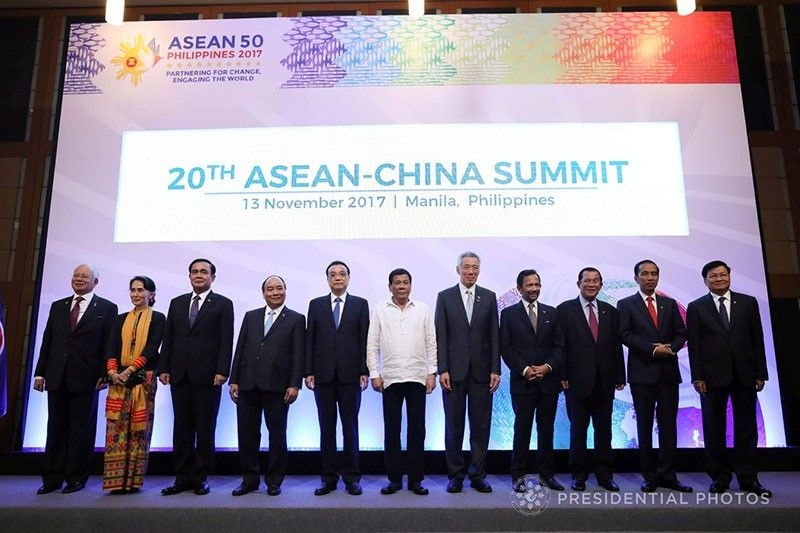Experts comment on East Sea negotiations
(Baonghean.vn) - Political science professor Aileen Baviera from the University of the Philippines commented that resolving disputes in the East Sea through dialogue between China and the Association of Southeast Asian Nations (ASEAN) is no longer useful.
During a roundtable discussion in Pasig City (Philippines), this expert said she would lean towards a “mini-multilateral” mechanism instead of including all ASEAN member countries in dialogue with China on the Code of Conduct of Parties in the East Sea (COC).
 |
| ASEAN-China Summit in Manila. Photo: AP |
Ms. Baviera shared: “ASEAN still plays an important role in certain issues, but how does ASEAN view the East Sea issue? This is a China-ASEAN issue, as long as ASEAN is concerned.” According to expert Baviera, the maritime dispute only involves China and some ASEAN member countries.
Negotiations on a legally binding code of conduct have been underway since the mid-1990s, but little progress has been made, even after the Declaration on the Conduct of Parties in the East Sea (DOC) was adopted in 2002, Ms. Baviera said.
Since then, the regional atmosphere has changed and the issues that countries are trying to resolve through the code are no longer the top security concerns in the South China Sea.
“Everything that China does in the South China Sea is driven by its own perception of what the United States is doing… It is no longer practical to continue doing the same things, because they have been proven to fail in the past. I believe it is the failure of multilateralism, and the weakness of the architecture that causes these problems,” Ms. Baviera pointed out.
While China and ASEAN negotiate the COC, Beijing and Manila also conduct a bilateral consultation mechanism on the South China Sea.
Meanwhile, Professor Ben Schreer of Macquarie University (Australia) criticized the way China continues to turn the East Sea into its "lake".
Professor Screer said the world needs to consider the East Sea dispute as a “large maritime theater” that involves many other regions of Asia.
